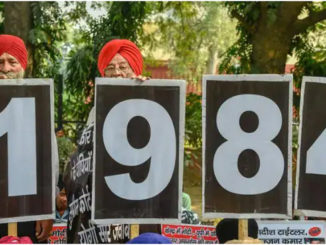
NEW DELHI (TIP): A Delhi court on Friday, February 21, reserved its order on the quantum of sentence in a 1984 anti-Sikh riots case involving former Congress MP Sajjan Kumar, who was convicted of the murder of Jaswant Singh and Tarundeep Singh in Delhi’s Saraswati Vihar on November 1, 1984. The court has scheduled February 25 as the date for sentencing.
The prosecution has sought the death penalty for Kumar, describing the case as one of the “rarest of the rare”. The victims’ lawyer has also demanded capital punishment for the 79-year-old, who is already serving a life sentence in a separate anti-Sikh riots case. Kumar has been in jail since December 31, 2018, following his conviction and life imprisonment by the Delhi High Court in another 1984 riots case.
On February 12, the court convicted Kumar, and on Friday, it sought a psychiatric and psychological evaluation report from Tihar Jail, in compliance with a Supreme Court directive for cases that may warrant the death penalty.
The prosecution alleged that a large mob, armed with deadly weapons, carried out widespread looting, arson and violence against Sikhs in retaliation for the assassination of then Prime Minister Indira Gandhi. The mob reportedly attacked the complainant’s house, killed Jaswant and Tarundeep, looted valuables and set the house on fire. The complainant’s counsel described the crime as genocide and cold-blooded murder, alleging that Kumar led the mob and incited the violence.
Special Judge Kaveri Baweja of Rouse Avenue Courts, while convicting Kumar, stated, “In light of the evidence on record, considered in its totality, I am of the opinion that the prosecution has been able to prove its case against the accused beyond reasonable doubt.”
Kumar has been convicted of multiple charges, including murder, rioting, dacoity, attempting to cause death or grievous hurt and arson as part of an unlawful assembly.
The anti-Sikh riots, which erupted following Indira’s assassination, resulted in the deaths of around 3,000 people, mostly Sikhs.
(Source: TNS)





Be the first to comment